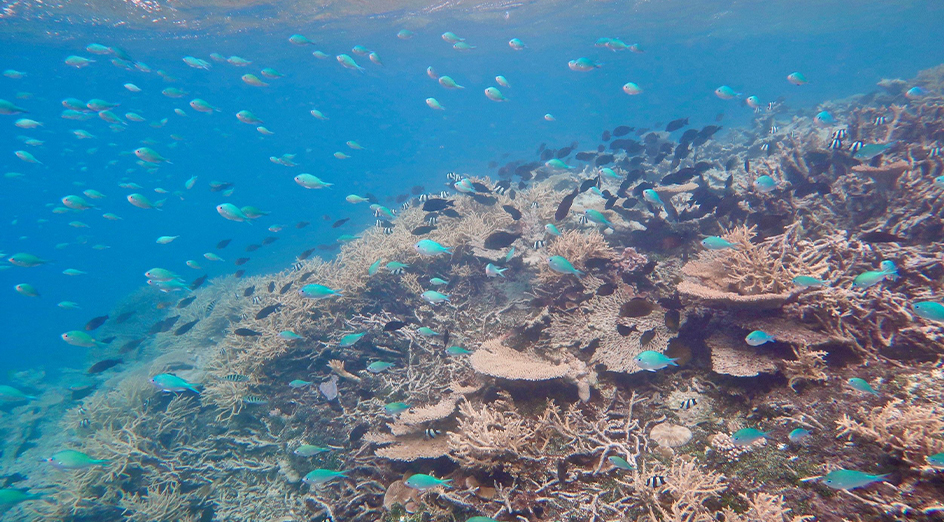An international team of researchers, including one from The University of Western Australia, has quantified five critical ecological processes on more than 500 coral reefs worldwide to understand how these processes relate to each other.
“We moved beyond simply using the biomass of a fish community, which has been a standard conservation metric, as a proxy for coral reef functioning, but rather looked at all of the different components."
Dr Diego Barneche
Their work, published in Nature Ecology and Evolution, explores what distinguishes the most functional reefs and what that means for management of reef functioning.
Dr Diego Barneche, an Adjunct Senior Researcher with The University of Western Australia’s Oceans Institute and Ecological Statistician at the Australian Institute of Marine Science, said the study demonstrates that five key functions performed by fish communities – the removal of algae, predation, biomass production, and the cycling of nitrogen and phosphorus – were inherently interconnected.
“So, while the performance of these processes is influenced by the community structure of reef fishes on any given reef, no reef can maximize each of the five processes simultaneously,” Dr Barneche said.
Coral reefs are often described as the rainforests of the ocean. However climate change and local threats, such as overfishing, have caused a stark decline in these worldwide, leaving scientists questioning whether future generations will still encounter healthy, ‘functional’ coral reefs. But what makes a reef functional?
Dr Nina Schiettekatte, postdoctoral fellow at UH Mānoa’s Hawai‘i Institute of Marine Biology and lead author of the study, said we needed to imagine a coral reef fish community swirling with small fishes that feed on algae.

“This community will be characterised by high algal consumption and high biomass production, but it will have low phosphorus cycling because these species excrete very little phosphorus,” she said.
Data was collected from individual fishes and combined with a large dataset on fish communities worldwide to gain detailed biological information on how they acquire and use energy and nutrients. And researchers found ecological processes on coral reefs worldwide were in a delicate balance, where it was impossible to maximise all processes.
Dr Barneche said the study quantifies multiple functions of coral reefs for the first time.
“We moved beyond simply using the biomass of a fish community, which has been a standard conservation metric, as a proxy for coral reef functioning, but rather looked at all of the different components,” Dr Barneche said.
“We also found that no single species was more important than others, but that half of all species were important in at least one location, meaning that there is no one fish species vital for ecosystem functioning but many local fish that are.”
The researchers concluded that a more nuanced approach to conserving coral reefs was needed that considered local species, ecosystem dynamics, and stakeholder needs.
